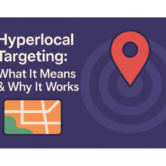
How Restaurants Are Using QR Menus + Social Media to Grow
Introduction: The Digital Revolution in Dining
The restaurant industry has always been about adaptation and innovation. From the first printed menus to tablet ordering systems, restaurateurs continually embrace new technologies to improve customer experience and operational efficiency. Today, two digital tools are revolutionizing how restaurants connect with customers and grow their businesses: QR code menus and strategic social media integration.
The COVID-19 pandemic accelerated the adoption of contactless solutions, but what began as a safety measure has evolved into a powerful marketing and growth strategy. Forward-thinking restaurants are now using QR menus not just as digital replacements for paper menus, but as gateways to comprehensive digital experiences that drive customer engagement, collect valuable data, and boost revenue.
The Evolution of QR Menus in Restaurants
From Contactless Solution to Marketing Powerhouse
When the pandemic hit, QR code menus provided a necessary safety solution by eliminating shared physical menus. Customers simply scanned a code with their smartphones to view the menu on their personal devices. What restaurants quickly discovered, however, was that digital menus offered advantages far beyond hygiene:
- Dynamic updates: Menu items, prices, and availability can be adjusted in real-time
- Cost savings: Elimination of printing costs for menu changes and seasonal updates
- Enhanced visuals: Ability to showcase high-quality food photography
- Multilingual options: Instant translation capabilities for international guests
- Dietary filtering: Allowing guests to filter options based on allergies and preferences
Beyond Basic Menus: Interactive Digital Experiences
Today’s leading restaurants are taking QR menus to the next level by transforming them into interactive digital experiences:
- Detailed dish descriptions: Including ingredient sourcing, preparation methods, and chef stories
- Pairing suggestions: Recommendations for wine, cocktails, or complementary dishes
- Nutritional information: Calorie counts and detailed nutritional breakdowns
- Customer reviews: Integration of dish-specific ratings and feedback
- Ordering flexibility: Options for customization and special requests
Integrating Social Media with QR Technology
Creating a Seamless Digital Ecosystem
Smart restaurateurs are now connecting their QR menu systems directly with their social media presence, creating a seamless digital ecosystem that encourages engagement across platforms:
- QR codes on physical touchpoints: Table tents, receipts, packaging, and signage all become portals to social channels
- Social sharing buttons: Direct integration within digital menus enabling instant sharing of dishes
- User-generated content promotion: Encouraging customers to post about their experience with restaurant-specific hashtags
- Digital loyalty programs: QR-accessible rewards systems that integrate with social following
Leveraging Social Proof for Growth
Restaurants are capitalizing on the power of social proof by strategically featuring user-generated content:
- Instagram walls: Digital displays of customer photos tagged with the restaurant
- Review highlights: Showcasing positive feedback across platforms
- Influencer partnerships: Collaborations with local food influencers promoted via QR touchpoints
- Behind-the-scenes content: QR links to kitchen tours, chef interviews, and food preparation videos
Data Collection and Personalization Strategies
Mining Digital Gold: Customer Insights
One of the most valuable aspects of integrated QR and social media systems is the wealth of customer data they generate:
- Ordering patterns: Tracking popular items, combinations, and peak ordering times
- Customer preferences: Gathering information on dietary choices and flavor profiles
- Feedback metrics: Analyzing satisfaction rates and specific improvement areas
- Visit frequency: Identifying regular customers versus one-time visitors
- Social engagement: Measuring which content drives the most interaction
Personalization: The New Hospitality Standard
Leading restaurants are using this data to create personalized experiences that were impossible with traditional menus:
- Custom recommendations: Suggesting items based on previous orders
- Special occasion recognition: Acknowledging birthdays, anniversaries, or repeat visits
- Preference memory: Recalling dietary restrictions or customization preferences
- Targeted promotions: Offering specials aligned with individual taste profiles
- Predictive ordering: Streamlining the experience for regular customers
Case Studies: Success Stories from the Field
Local Bistro Increases Revenue by 28%
[Note: This would be an excellent place for an internal link to a detailed case study if available]
A neighborhood bistro implemented QR menus with social integration and saw remarkable results:
- 28% increase in average order value
- 15% boost in dessert and appetizer sales
- 300% growth in Instagram followers in 6 months
- 22% increase in repeat customers
The key to their success was using QR codes that not only displayed menus but also offered a 5% discount for following their social channels and sharing photos of their meal.
Fast-Casual Chain Transforms Customer Feedback
A regional fast-casual restaurant chain revolutionized their feedback system by integrating QR-based surveys with social media:
- Feedback response rates increased from 3% to 32%
- Resolution of negative experiences improved by 87%
- Public positive reviews increased by 64%
- Menu refinement based on direct feedback led to 17% sales growth
Implementation Guide: Getting Started with QR + Social Integration
Essential Components for Success
Restaurants looking to implement an effective QR menu and social media strategy should focus on these key elements:
- User-friendly QR menu platform: Choose a solution that’s easy to update and provides analytics
- Strategic QR placement: Position codes where they’re easily accessible and clearly marked
- Strong social media presence: Maintain active, engaging accounts across relevant platforms
- Consistent branding: Ensure visual continuity between physical restaurant, digital menu, and social channels
- Staff training: Educate team members on the system and how to encourage customer participation
Common Pitfalls to Avoid
Many restaurants make these mistakes when implementing digital strategies:
- Slow-loading menus: Customers abandon menus that take too long to appear
- Poor mobile optimization: Menus must be easily readable on all device sizes
- Excessive steps: Each additional click reduces completion rates
- Outdated information: Inconsistency between digital and actual offerings creates frustration
- Lack of guidance: Customers need clear instructions on how to access and use digital features
Measuring Success: Key Performance Indicators
Tracking the Right Metrics
Successful restaurants monitor these crucial indicators to evaluate their digital strategy:
- Scan rate: Percentage of customers who use the QR system
- Bounce rate: How many customers leave the digital menu without ordering
- Average order value: Comparison between QR orders and traditional ordering
- Social conversion: Rate at which menu users become social followers
- Engagement metrics: Likes, shares, comments, and mentions generated through integration
Future Trends: What’s Next for Restaurant Digital Integration
Emerging Technologies to Watch
The integration of QR menus and social media is just the beginning. Forward-thinking restaurants are already exploring:
- Augmented reality experiences: Virtual dish previews before ordering
- AI-powered recommendations: Sophisticated suggestion algorithms based on preferences
- Blockchain loyalty programs: Secure, transferable reward systems
- Voice-activated ordering: Hands-free menu navigation and selection
- Integrated payment systems: Seamless checkout directly from digital menus













